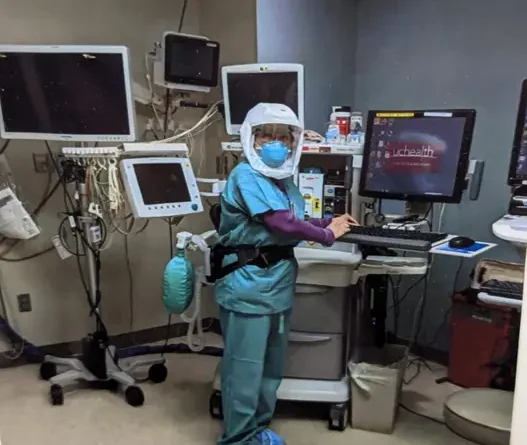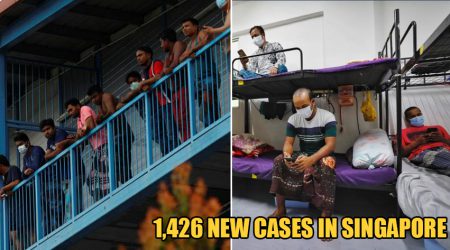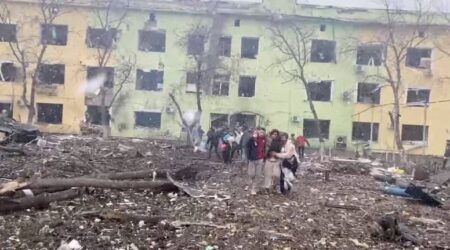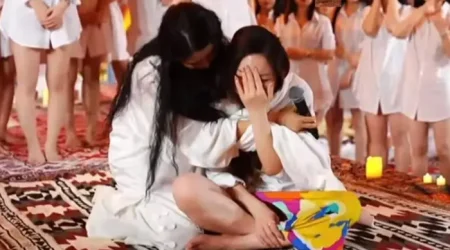How this small-town Malaysian who kept failing exams became a doctor in the US
As a young girl growing up in Tasik Junjung, a small border town in Province Wellesley (now Seberang Perai), Dr Michelle Kem Su Ng-Hor always felt that she was of the “wrong gender”, born at a wrong time – when girls were destined to be treated differently from boys.
Now a successful gastroenterologist with her own practice in Colorado Springs in the United States and a medical centre where she trains student and post graduate doctors, Dr Ng-Hor hopes her life story can inspire hope in girls to never give up on their dreams, no matter their circumstances.
“I was born on Jan 1, 1955 and was the last child out of 11. One of my siblings, an older sister, died young and so there were seven of us girls and only three boys growing up. All priorities went to the boys,” she shares.
Despite this, Dr Ng-Hor says that she was lucky to have been the only one of her siblings to study in a private convent school.
“Why? Because I was the wild one, and also the youngest. I was also the only one who went overseas,” she says in an interview a week ago during a trip back home to Malaysia.
“I want to share my story because I feel it may inspire other Asians, especially girls who are not treated equally. The mindset in Chinese families – certainly in my time, and maybe even now – is that there is no point educating a girl because she will be married off into someone else’s family. This has to change,” says Dr Ng-Hor, 69.
All work, no play
Schooling wasn’t a breeze for her.
“It was tough as I had to get up very early .. around 5am … and go work in the coconut plantation before heading to school. And, I also had to work there after school too. I was sleep deprived throughout my schooling years and didn’t do well. I failed my LCE (Lower Certificate of Education, equivalent to the PMR) because I had no time to study. I was falling asleep during the exam,” she says.
But still, she was determined not to leave school.
She passed the LCE on her second try but her father still insisted that she must drop out of school. She refused, adamant that she wanted to finish high school. So, he relented on the condition that she would have to pay her own way through.
Although the convent school fees were only RM6 at the time, the young student found it a struggle to come up with the money as she earned just 15sen an hour.
“I was always late with paying my fees and, as a result, I was punished. My fingers were also rapped with a ruler during our weekly hygiene inspections because they would bear the stains from working in the coconut plantation. They were not dirty … just stained, but every single week I would get punished.”
The challenges she felt as a schoolgirl has informed her own sensibilities as a teacher now, says Dr Ng-Hor.
“In school, I always felt that I was stupid because I didn’t do well. Because I had to work, I had no time to study. Unfortunately, a lot of teachers are unaware of the background and circumstances of their students. Now, as a teacher, I always look at the background of my students to make sure they are able to study, that they are not abused, or if they they need assistance.
“I don’t want my students or any student to think they are stupid or that they cannot make it. All you need is find different ways to try. If one door closes, another will open,” she says.
A ticket to ride
Although her determination got her through secondary school, Dr Ng-Hor didn’t get her MCE (Malaysian Certificate of Education or SPM) cert as she failed her Bahasa Malaysia paper.
“In the Malaysian education system, it meant I failed. But, not for the British education system – in their eyes, I did very well. But, I didn’t have any money to go to England,” she says.
Refusing to be put off, she worked hard to save up enough for a flight ticket to the United Kingdom.
“I worked several jobs, at same time, in Penang. I worked on an assembly line making transistor radios; as a house maid and a night tutor.
“On weekends, I would go door to door selling Holiday Magic cosmetics – this proved to be the most difficult walking in the hot sun and encountered some families that let their dogs out to attack me. They were very mean and I got bitten twice, I think,” she says.
She then moved to Kuala Lumpur to live with her sister where she worked as a supermarket promoter and a receptionist in an accounting firm.
“It was tough but this was how I survived and, in two years, I saved up enough money to buy a one-way ticket to England in 1975,” she says.
In England, Dr Ng-Hor studied nursing.
“There weren’t too many options and with nursing, we would get paid a stipend because we would be working as we trained.
“Life was not easy and, as foreigners, we were assigned the worst duties. I remember how I had to wash and pack 10 dead bodies daily, for nine days in a row. I was only 20, had never seen a dead person in my life. I cried and wanted to give up but where would I go?
“I didn’t have a future in Malaysia because I failed BM. So, I talked to my dead patients. My colleagues in the nurses home were very supportive. I never mentioned any of my struggles to my family because I didn’t to want to let them down,” she says.
Despite only getting a £40 stipend, she sent her parents £10 every month. The rest went on rent, food, and necessities.
“I would eat patients’ leftovers as some didn’t eat much and, being Asian, we didn’t want to throw food away. I would also stretch a packet of instant noodles to two meals,” she recalls.
From nurse to doctor
Upon graduating from nursing school, she decided to do a part-time course to be a medical secretary (qualified to manage the flow of patients in a clinic or doctor’s office).
“I worked for the Camden Islington Area Health Authority, assisting my boss, who was a physician and a faculty member at the University of London, School of Medicine.
“She recognised my skills and saw my hunger to excel and invited me to teach her first year students about survival in the medical profession,” says Dr Ng-Hor.
“My talent and hunger to do well was recognised there.”
Not too long after, she received a job offer to work in the US. After 10 years as an Intensive Care nurse, she was awarded “ICU nurse of the year” in 1989. Seeing her talent and dedication to constantly upgrade her skills, her doctor colleagues persuaded her to pursue medicine.
“The cardiovascular surgeon offered to pay my tuition fee but I declined. At 35, I started medical school and graduated five years later and completed my residency and specialty training in the same hospital,” she says.
Currently, the accomplished doctor is completing a GI/Hepatology syllabus for medical students, residents, fellows and all health care providers.
“Honestly, I am very happy teaching medical and nursing students. This is a reward that no money in this world can offer,” she concludes.
















Leave a Reply